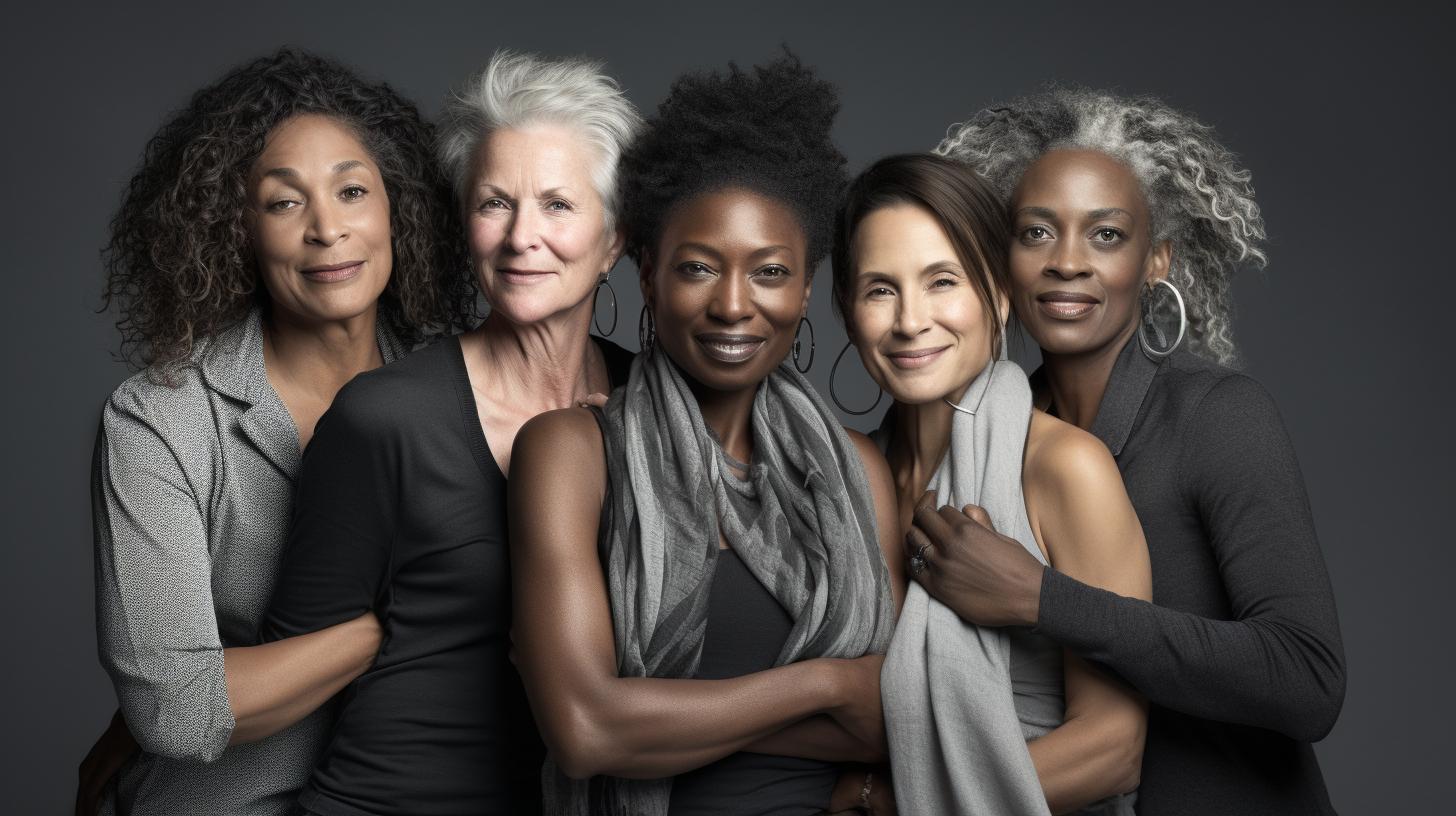Imagine you didn’t have enough water in your body. Your skin would be dry; your lips would crack. You’d feel thirsty all the time, but no amount of water would help. You could even pass out from dehydration. Now, imagine the same scenario, but with an essential hormone for women – estrogen. Suddenly, the overlooked reality is much clearer, isn’t it?
Unfortunately for many women over 40, this is not an imagination drill but rather a living, breathing reality. It’s the silent epidemic – the subtle shift in our bodies that tends to go unnoticed, often branded as a byproduct of aging.
The technical term? Estrogen deficiency. Predominantly prevalent in perimenopausal and menopausal women, this hormonal imbalance is often brushed under the rug when it’s indeed a matter worth discussing across dinner tables. Mother Nature’s inevitable course of aging doesn’t have to be a silent suffering.
Research suggests that estrogen, a hormone produced by the ovaries, plays a vital role in health aspects that extend beyond reproduction. It impacts: memory, mood regulation, bone density, skin health, heart health, and even gastrointestinal health.
As per the Endocrine Society, the natural decline of estrogen during the transition into menopause can result in an array of uncomfortable symptoms. These could range from hot flashes and night sweats to sleep disturbances, mood changes, and cognitive issues.
But let’s not surrender to the whims of menopause before exploring possible solutions. Here’s the golden nugget: just as you can hydrate a parched body, you can address estrogen deficiency that so many women silently grapple with.
First, a balanced diet is paramount. Foods rich in phytoestrogens, plant compounds that can mimic estrogen in our bodies, can have a beneficial impact. Key players here include flaxseeds, soy products, dried fruits, whole grains, and certain vegetables like celery and parsley.
However, it’s also crucial to remember that everyone’s body is different. What might work for one may not be as effective for another. Therefore, before you begin incorporating high-phytoestrogen food in your diet, consultation with a healthcare professional is essential. They can provide advice tailored to your health history, current migraines,
lifestyle, and nutritional needs.
Exercise plays an equally important role as diet. Regular physical activity can help maintain bone density and reduce the risk of osteoporosis – a sneaky side-effect of estrogen deficiency. Additionally, it can aid in maintaining a healthy weight, sleep pattern, mood stability, preventing heart disease.
If lifestyle modifications are not enough, Hormone Replacement Therapy (HRT) is an option to consider under the guidance of a healthcare professional. HRT can effectively replenish estrogen levels and alleviate numerous menopausal symptoms, helping improve overall quality of life.
However, it’s not all rainbows and unicorns. Hormone replacement therapy is not without risks. According to Mayo Clinic, some of these risks include blood clots, stroke, and certain types of cancer. Hence, a thorough discussion with your healthcare provider is paramount, weighing the benefits and risks that apply to your situation.
In the face of this silent epidemic affecting women over 40, awareness is most definitely your lifejacket. Regular check-ups, keeping an open dialogue with your healthcare provider, practicing self-care, and advocating for your health can make all the difference.
While menopause is a natural part of aging, suffering silently isn’t. It’s high time we obliterate the stigma surrounding menopause, inviting much-needed conversation into the room.
Let’s advocate for estrogen deficiency to no longer remain the silent epidemic. Let’s shed light on this issue, opening doors to a healthier and happier life for women worldwide who are striding gracefully into their 40s and beyond.
In the face of the inevitable, stand strong, take charge, and remember, you’re not alone in this journey. Together, we can turn this silent epidemic into a silent revolution, empowering women to regain control over their bodies and, ultimately, their lives. After all, aging isn’t about lamenting what once was but relishing what still can be!



